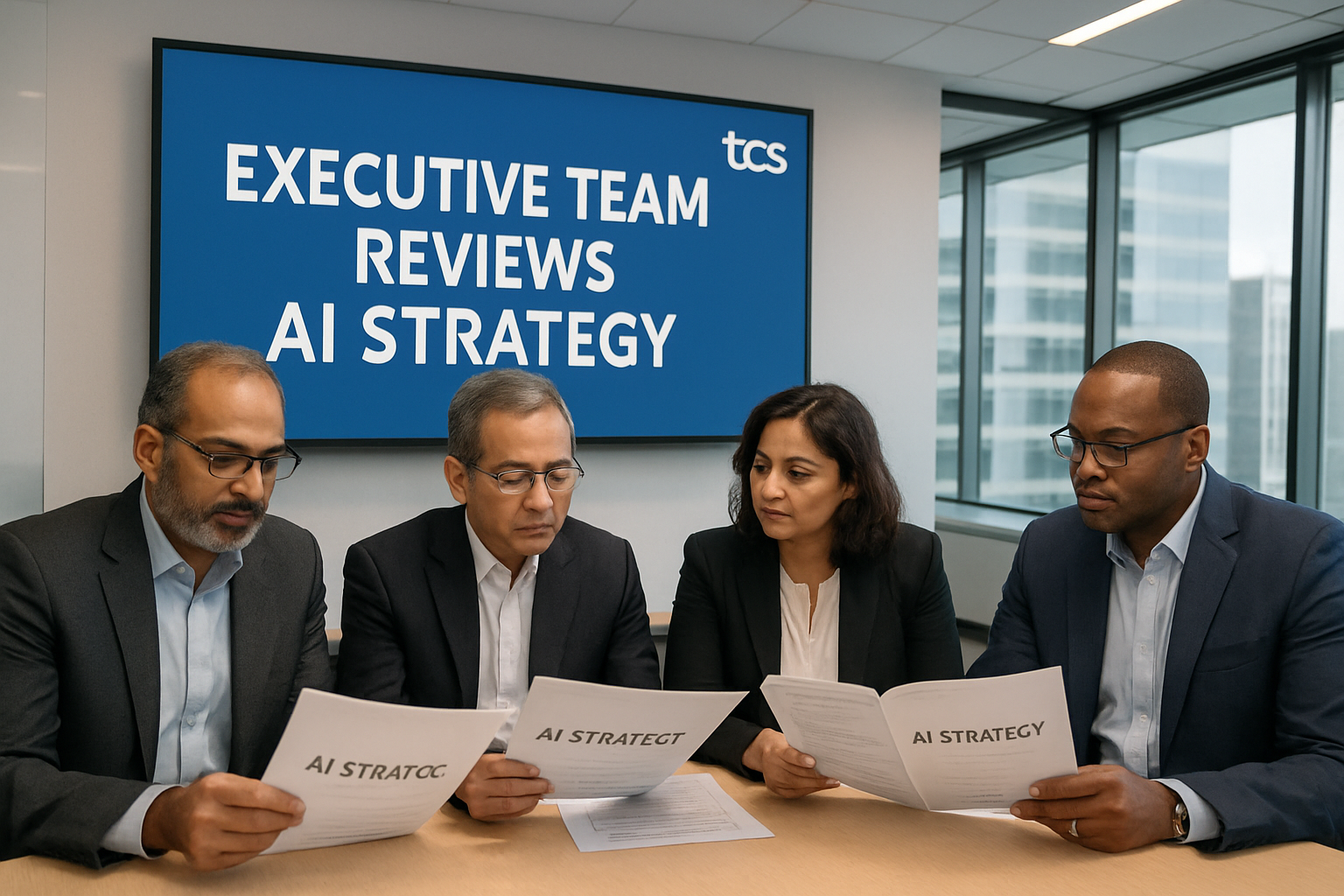Quick Take
- TCS becomes first major Indian IT firm with dedicated AI business unit starting September 2025
- India’s $283 billion IT outsourcing sector faces cost pressures and weakened traditional spending
- 93% of Indian corporations plan increased AI investment by 2025 per industry surveys
- New unit led by 20-year TCS veteran Amit Kapur consolidates existing AI capabilities
- Workforce reduction of 12,000 employees (2%) planned for fiscal 2026
Tata Consultancy Services is launching a dedicated AI unit as industry data shows 93% of corporations are ramping up AI investment while traditional IT spending declines across India’s massive outsourcing sector.
Market Pressure Drives Strategic Pivot
Tata Consultancy Services (TCS), India’s largest IT services provider, announced plans to create a dedicated Artificial Intelligence and Services Transformation Unit. The move makes TCS the first major Indian IT company to establish an exclusive AI business unit.
The decision comes as India’s $283 billion IT outsourcing sector grapples with challenges from global economic uncertainties and tighter client budgets. Traditional IT spending has softened as companies slash costs and delay expansion projects.
Leadership Focus on AI Transformation
Amit Kapur, a TCS veteran, will head the new unit starting September 1, 2025. Kapur previously ran TCS’s UK and Ireland operations, bringing international experience to the AI transformation effort.
According to Peter Bendor-Samuel, CEO of Everest Group, “This announcement indicates much more investment and senior management focus is now being given to the AI transformation challenge.”
The launch puts TCS in direct competition with global players like Accenture, which created a similar AI unit earlier this year.
Growing Corporate AI Adoption
The restructuring reflects broader market trends, with surveys showing 93% of Indian corporations plan to boost AI investments by 2025. Nearly 90% have already launched more than 10 AI pilot projects in 2024.
Industry analyst Pareekh Jain calls AI transformation the key growth driver amid current market weakness. For TCS, this reorganization represents both opportunity and necessity as AI increasingly handles tasks previously done by large IT teams.
Partnership Strategy Over Acquisitions
TCS represents the cautious approach Indian IT companies take toward AI expansion. Rather than pursuing expensive acquisitions like global competitors, Indian firms favor partnerships. In 2024 alone, Indian companies formed 46 AI-related partnerships with cloud providers and startups.
This partnership model allows companies to scale AI offerings without major financial commitments while accessing cutting-edge capabilities.
Workforce Transformation Reality
The AI push comes with workforce changes. TCS plans to cut its workforce by roughly 2%, about 12,000 employees, in fiscal 2026. The company says this will boost agility during AI-driven business transformation.
This restructuring highlights broader industry tensions between AI efficiency gains and the traditional employment models that have defined Indian IT services for decades.
Operational Integration Strategy
The AI and Services Transformation Unit will bring together TCS’s existing AI teams and work with other service units and industry groups to improve AI delivery. The structure aims to scale impact and deliver real benefits for clients.
TCS plans to use its Pace Ports global innovation centers to co-create and demonstrate AI solutions with clients. The focus goes beyond technology to AI-powered integrated services across operations, engineering, and modernization.
Industry Evolution Signal
TCS’s transformation signals a broader industry shift from traditional outsourcing to AI-enhanced continuous services. Companies that delay AI adoption risk falling behind as automation reshapes service delivery models.
For clients, consolidated AI capabilities mean access to deeper expertise and faster innovation cycles. The success of this strategy could influence how other Indian IT firms approach AI transformation as global demand for AI services grows.






